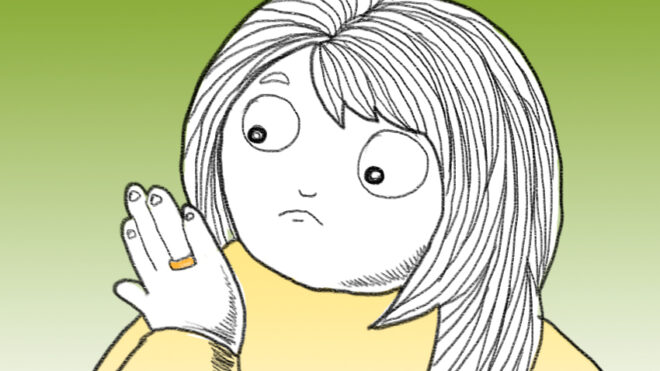There have been many studies on parenting styles and their impact on children. In the 60s, psychologist Diana Baumrind conducted a study that identified two important parenting factors: "demandingness" and "responsiveness." Based on these two aspects, Baumrind came up with three parental styles:authoritarian, permissive (or indulgent) and authoritative. Latinas like me tend to be raised by authoritarian parents while gringas are more likely to be raised by permissive parents. According to most studies, both extremes have negative effects on children.
Read more ¿Qué más?: 5 Ways you can discipline your kids without spanking
Research shows that kids raised by authoritative parents are "more likely to become independent, self-reliant, socially accepted, academically successful and well behaved." Regardless of your style, research also shows study that "parents who enforce limits are less likely to have kids engaged in drug and alcohol use, juvenile delinquency, or other antisocial behavior."
Like so many Latinas, I was born in Latin America (Chile) but have raised two teens in the U.S. I can't say that I have the perfect parenting style. My parenting style is not a perfect nor moderate blend of the authoritarian (Latin) and the permissive (American) styles–as it should be. In fact, I think that my parenting style seems to swing back and forth between these two dramatically different approaches!
Authoritarian parents tend to be highly-demanding, very strict and controlling but they're not very responsive to their children. Children are expected to obey, conform and never question the rules imposed by their parents. And, if children don't follow the rules they are harshly punished. So chancletazos and other types of corporal punishment are frequent and random. The fairly typical answer to a child's questioning of a specific rule that doesn't make sense might be something like "Porque lo digo yo. Y yo soy la mama. ¡No tú!." (Because I say so. I am the mother, not you!"). According to research, children raised by authoritarian parents "may be relatively well-behaved. But they also tend to be less resourceful, have poorer social skills, and lower self-esteem. Compared to kids raised by authoritative parents."
Permissive parents are at the other extreme__.__ They are typically not very demanding. They are hesitant to impose and enforce too many rules and go let their kids regulate themselves. They tend to be non-confrontational and rarely punish their children. They are more of a friend than a parent. According to Baumrind, permissive parents "are more responsive than they are demanding."
Authoritative parents are considered to be the most effective and balanced. Authoritative parents believe in having and enforcing rules. Unlike authoritarian parents, they believe that they can reason with kids and explain the reason behind the rules. They encourage kids to express their opinion, even if it differs from their own, and they aim to raise highly independent-thinking and acting kids. This style is extremely receptive (communicative) and very demanding. Authoritative parents, unlike permissive parents, believe in setting rules and they expect their kids to act responsibly by following them. And if the children misbehave they rely on explaining the rules. And if their kids don't follow them, they believe in following through with the consequences. This is a mistake I make often. Rather than reason or explain calmly and rationally, I scream, deliver empty threats and I am not very good at following through with the consequences. Despite my schizophrenic parental style, my kids are pretty well adjusted and successful. It does make me wonder if other Latinas have similar issues that are a direct result of our bicultural reality.
Image via Corbis




